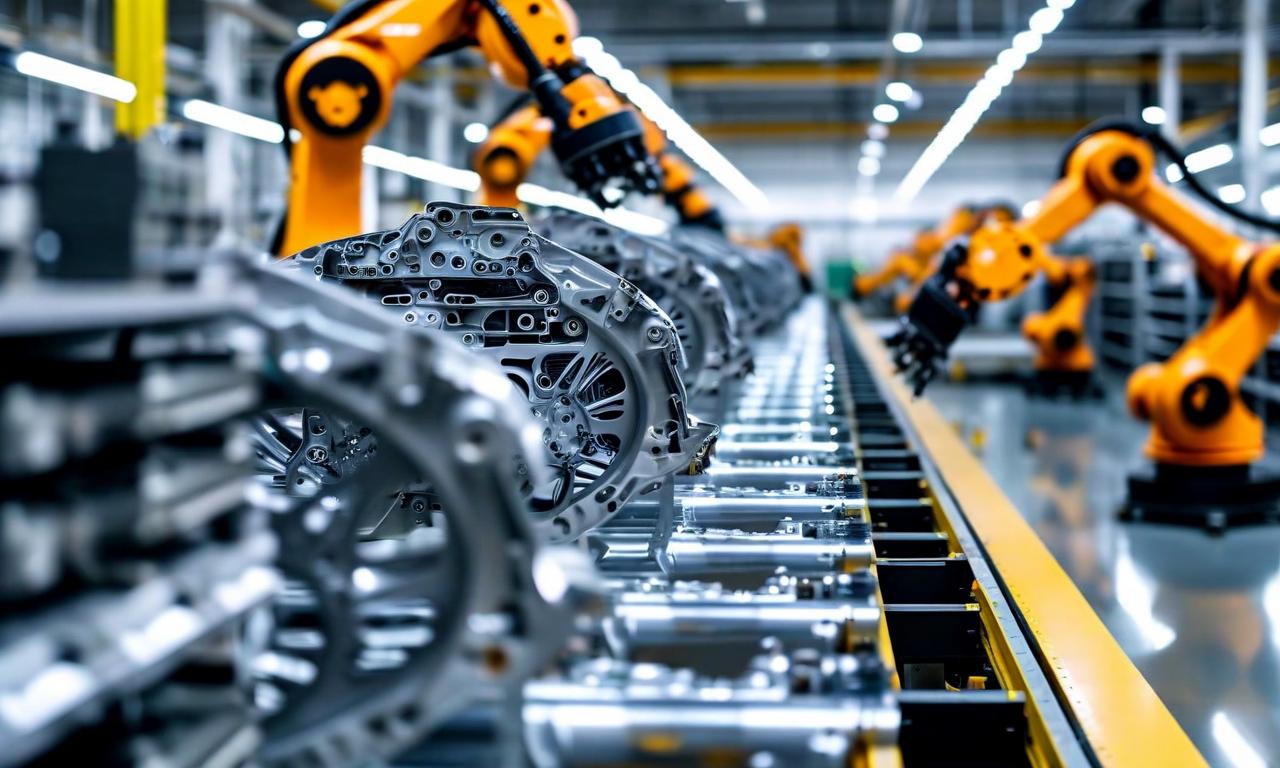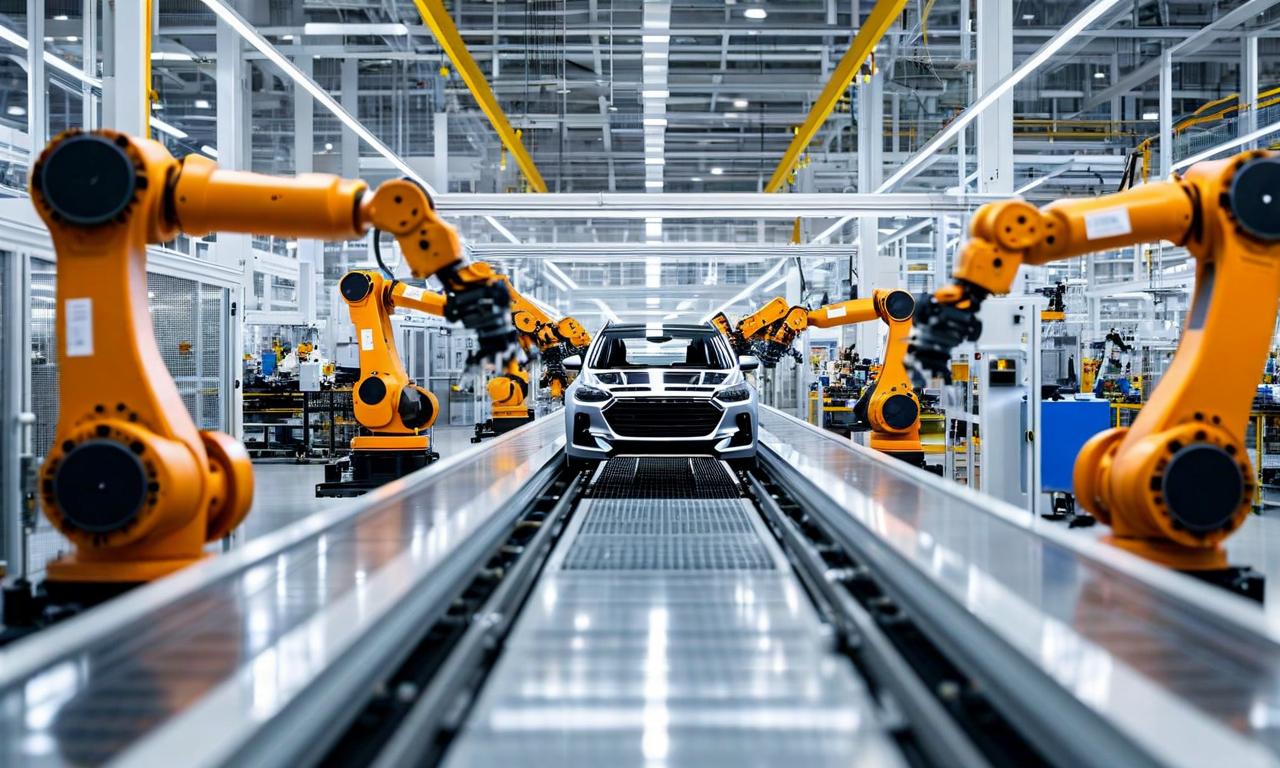Jaguar Land Rover to Resume Production After Cyberattack, Reports Lower Q2 Sales
Tata Motors' subsidiary Jaguar Land Rover (JLR) will resume production from October 8 following a shutdown due to a cyberattack. JLR is introducing a fast-track financing scheme for suppliers, offering upfront cash payments to improve cash flow and supply chain stability. However, JLR reported lower Q2 sales with retail sales down 17.10% and wholesale volumes declining 24.20% year-over-year due to the cyber incident, phase-out of older Jaguar models, and US tariffs.

*this image is generated using AI for illustrative purposes only.
Tata Motors , the Indian multinational automotive manufacturing company, has announced that its subsidiary Jaguar Land Rover (JLR) will resume production operations from October 8, following a shutdown due to a cyberattack. Additionally, the company has introduced changes to its supplier payment structure to support the restart. However, JLR has also reported lower sales in Q2 due to multiple challenges.
Production Restart
JLR will begin a phased restart of its manufacturing operations, starting with:
- Electric propulsion manufacturing centres in the West Midlands, UK on October 8.
- Gradual resumption at stamping facilities in Castle Bromwich, Halewood, and Solihull.
- Vehicle manufacturing in Nitra, Slovakia, and Range Rover production lines at Solihull.
The production had been halted since August 31 due to a cyberattack, reportedly causing losses of £50.00 million per week.
New Payment Structure
To support suppliers during the restart phase, JLR has introduced a fast-track financing scheme:
- Eligible suppliers will receive upfront cash, replacing the standard 60-day payment terms.
- The majority of payments will be made shortly after order placement.
- This change aims to improve cash flow for suppliers and enhance supply chain stability.
Q2 Sales Challenges
JLR experienced lower sales during a challenging second quarter. Tata Motors reported that its JLR division recorded retail sales of 85,495 units in Q2, representing a 17.10% decrease compared to the same period last year. The company's wholesale volumes also declined to 66,165 units, marking a 24.20% year-over-year decrease.
The sales were impacted by multiple factors including:
- A cyber incident that occurred in September
- The phase-out of older Jaguar models
- US tariffs that reduced sales volume
Market Response
Despite the announcement of production restart, Tata Motors shares traded 1.70% lower at ₹700.45, down 3.00% over the past month.
Implications
- Improved Cash Flow for Suppliers: The new structure could potentially improve cash flow for suppliers, as they will receive a significant portion of their payment earlier in the production cycle.
- Enhanced Supply Chain Stability: By providing earlier payments, JLR may be able to strengthen relationships with key suppliers and ensure a more stable supply chain.
- Working Capital Management: This change may require adjustments in JLR's working capital management strategies to accommodate the earlier outflow of cash.
- Sales Recovery: JLR will need to address the factors affecting Q2 sales, including mitigating the impact of the cyber incident and strategizing for the phase-out of older models.
Context within Tata Motors' Operations
While this announcement specifically pertains to JLR's operations and supplier network, it's worth noting that Tata Motors continues to show robust performance across its various segments. According to the latest SIAM (Society of Indian Automobile Manufacturers) report:
| Vehicle Category | Production | Domestic Sales | Exports |
|---|---|---|---|
| Passenger Vehicles | 140,903 | 140,189 | 4,208 |
| Commercial Vehicles | 60,522 | 52,539 | 4,881 |
These figures demonstrate Tata Motors' strong presence in both passenger and commercial vehicle segments, underlining the importance of efficient supply chain management and production across all its operations.
The production restart, new payment structure for JLR suppliers, and efforts to address sales challenges align with Tata Motors' broader strategy of optimizing its global operations and maintaining strong relationships within its supply chain. As the automotive industry continues to face challenges and transformations, such measures could play a crucial role in ensuring resilience and competitiveness.
Historical Stock Returns for Tata Motors
| 1 Day | 5 Days | 1 Month | 6 Months | 1 Year | 5 Years |
|---|---|---|---|---|---|
| -0.48% | -0.32% | +6.30% | +44.94% | +44.94% | +44.94% |




































